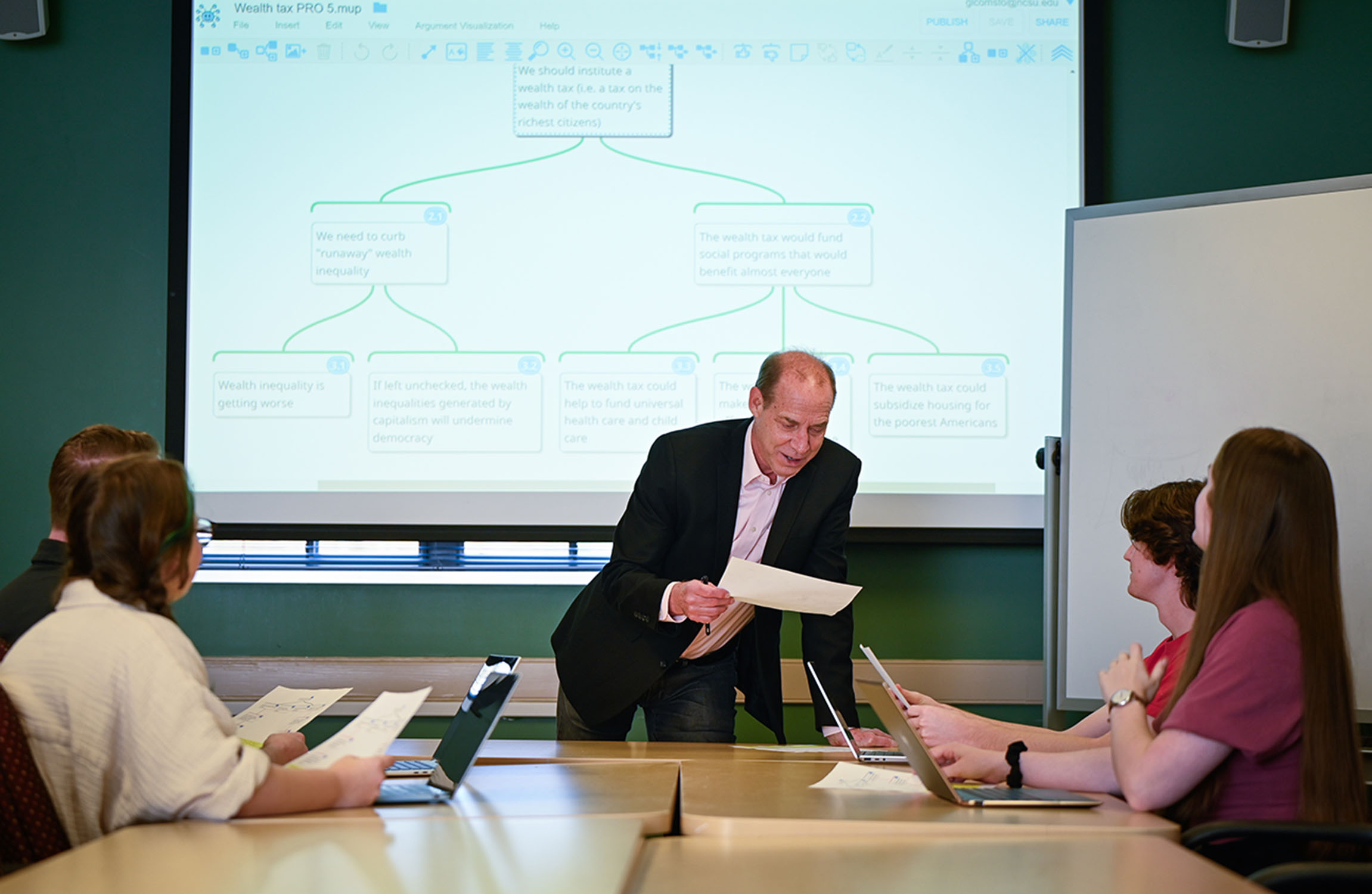New Book Explores Political Philosopher’s ‘Original Position’

Think about this:
What basic rules would you choose to form a society, if you were completely ignorant of your religion, race or socioeconomic status in that society?
That question forms the basis of the original position, a thought experiment introduced by one of the most influential political philosophers of the 20th century, John Rawls. In the hypothetical situation, presented in Rawls’ 1971 book A Theory of Justice, people who know nothing about crucial features of themselves are to pick the principles of justice that will regulate their society.

In a new book, The Original Position (Cambridge University Press, 2016), NC State philosophy professor Timothy Hinton and a dozen other scholars offer a range of perspectives on Rawls’ influential theory. Hinton served as editor on the project.
While the book is intended for other scholars and upper-level undergraduates, Hinton said the debate around the direction of democracy should be relevant to all citizens.
“What makes Rawls such an important figure is that he invited us to think, as citizens and philosophers, about the normative basis of our democracy,” Hinton said. “Western liberal democracies are in a moment of crisis where we’ve lost sight of what a democracy actually is. Democracy has been swamped by money and rhetoric, rather than what it’s meant to be: citizens deliberating about what’s for the common good.
“Rawls’ work helps us to grapple with the question, ‘What can we do as citizens to take back some of the core values of democracy?’”
Hinton chose scholars for the book who could offer an array of perspectives on Rawls’ theory, from feminist receptions to the utilitarian response. Hinton’s chapter focuses on the radical response to the original position.
Hinton, who was a student of Rawls at the Massachusetts Institute of Technology, said Rawls believed that liberal democratic societies need a philosophical defense, or a line of reasoning, to help justify and make sense of their existence. Rawls thought the best defense was through the traditional concept of a social contract, when individuals agree to a set of rules to form a civilized society. That social contract, Rawls argued, must be developed within the original position, from behind a “veil of ignorance” that in theory would force an impartial choice of what rules should give basic shape to a society.
“Rawls thinks what you rationally have to choose in that original position are two basic principles, one that gives everyone equal rights, and one that gives everyone a claim on resources that’s roughly equal,” Hinton said. “The idea is that it’s OK if there are inequalities in wealth and income, but those inequalities have to be better for everyone involved.”
For more information on The Original Position, check out the book’s page on the Cambridge University Press website.


